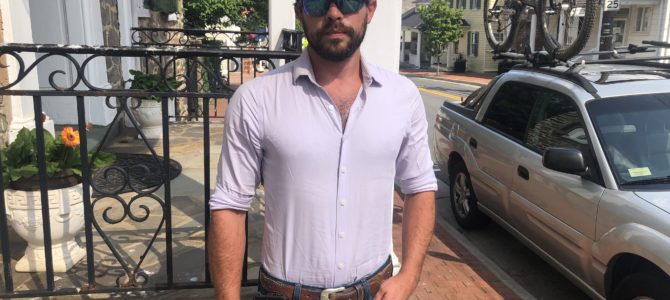
Virginia’s Loudoun County Public Schools has emerged as a national representation of the critical race theory (CRT) clash between parents and administrators. A local school board recall effort is gaining traction. But aside from figures like Ian Prior at Fight for Schools or thinkers at The Heritage Foundation that sponsor events, what do normal Loudouners think?
I ventured out to Loudoun County to walk the streets of Leesburg and Ashburn and see who would talk to me about CRT. Most turned me down, understandably cautious about staking a political claim in media.
The owner of one clothing store instructed me to leave after I uttered the phrase “critical race theory,” questioning why anyone should care. A Taiwanese coffee store owner expressed a worry that his bipartisan customers would repudiate him. A woman who said she is a former public school teacher whispered to me in a Giant Food Store through a mask that she probably shouldn’t talk, while her daughter nudged her to keep walking.
Here are five Loudouners who agreed to talk to me using their names, and here’s what they had to say about CRT.
Suzanne Byers
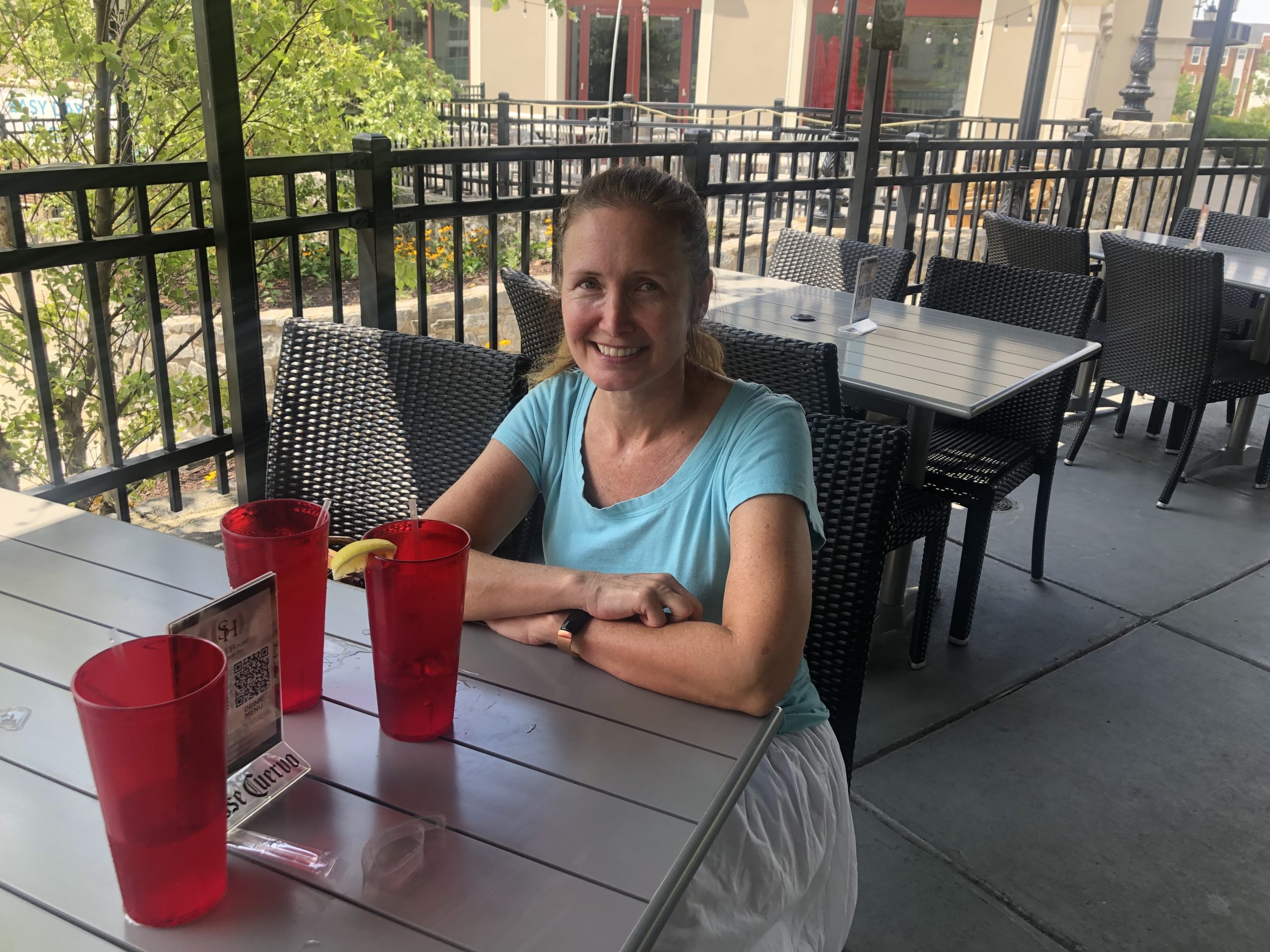
Suzanne Byers is a physical therapist at an outpatient clinic. She has kids in middle school and has lived in Loudoun off and on for the last 20 years.
Byers first became aware of CRT in Loudoun when her daughter came home from school, got in the car, and asked if her mother was a member of the Ku Klux Klan. “I was like ‘Wait, what.’ She was at a lesson in history,” Byers told me. “I asked her what she learned. She couldn’t really tell me, and then I kind of joked, ‘Well, you know Democrats started the KKK, right?’ She was like ‘No.'”
“There’s a lot of social justice they focus on in seventh grade,” she continued. “There was an email that went out from her history teacher that said ‘We’re going to be talking about a lot of sensitive subjects.'”
Byers says she’s attended recent school board meetings and spoken, but “I don’t feel like I’m being heard.” Like other parents I’ve spoken to, she expressed frustration with the format and would prefer a town hall that is more conducive to free expression.
The last straw for Byers was when her daughter was told by her history teacher that 14 years old is a reasonable age to peacefully protest and be excused from school. Her public school was trying to turn her seventh-grader into a leftist activist without her knowledge.
“I think it’s been in the schools [before], “she said. “But it’s been very quiet and suppressed and discreet behind the scenes. And now they’ve been wide open with all of it.”
Gunar Hawes
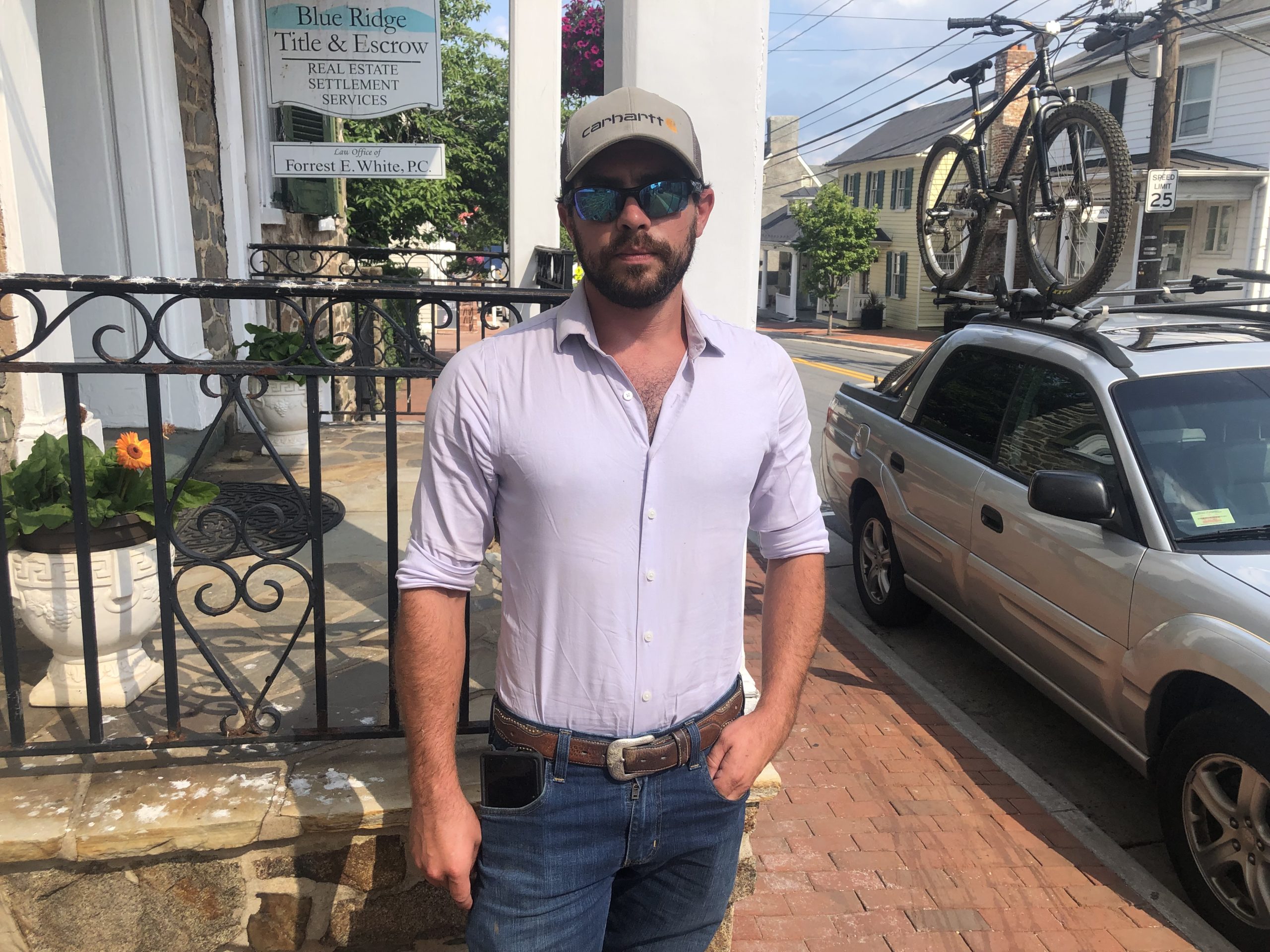
Gunar Hawes, 30, says he has lived in Loudoun for his entire life. He builds custom log homes. As we spoke, he smoked a cigarette, with his other hand snug in his jeans pocket.
Hawes is a libertarian. He noted he cannot speak on behalf of all Loudouners on CRT, but said he and his friends all oppose what is going on in the public school system.
“I believe it is a very racist agenda,” he said about CRT, “proposed by a very Marxist kind of view… I’m a very nice person. I don’t have any problems with anybody of any different color. And I don’t think it’s a subject that needs to be taught in schools.”
Hawes said he believes in equality of opportunity but not equality of outcome, which critical race theorists often call “equity.” He told me has been outspoken on social media about what is going on in Loudoun County Public Schools, but has not participated in in-person activism like some of his peers.
When I asked if he wants to see CRT banned, he said no.
“[We need] a free-market solution,” he said. “If it wants to be spoken about, those people should have the right to go into those classes if they would like — but I do not believe it should be forced on children. They honestly don’t know what in the world it is.”
Hawes supports the school board recall effort.
Fred Rege
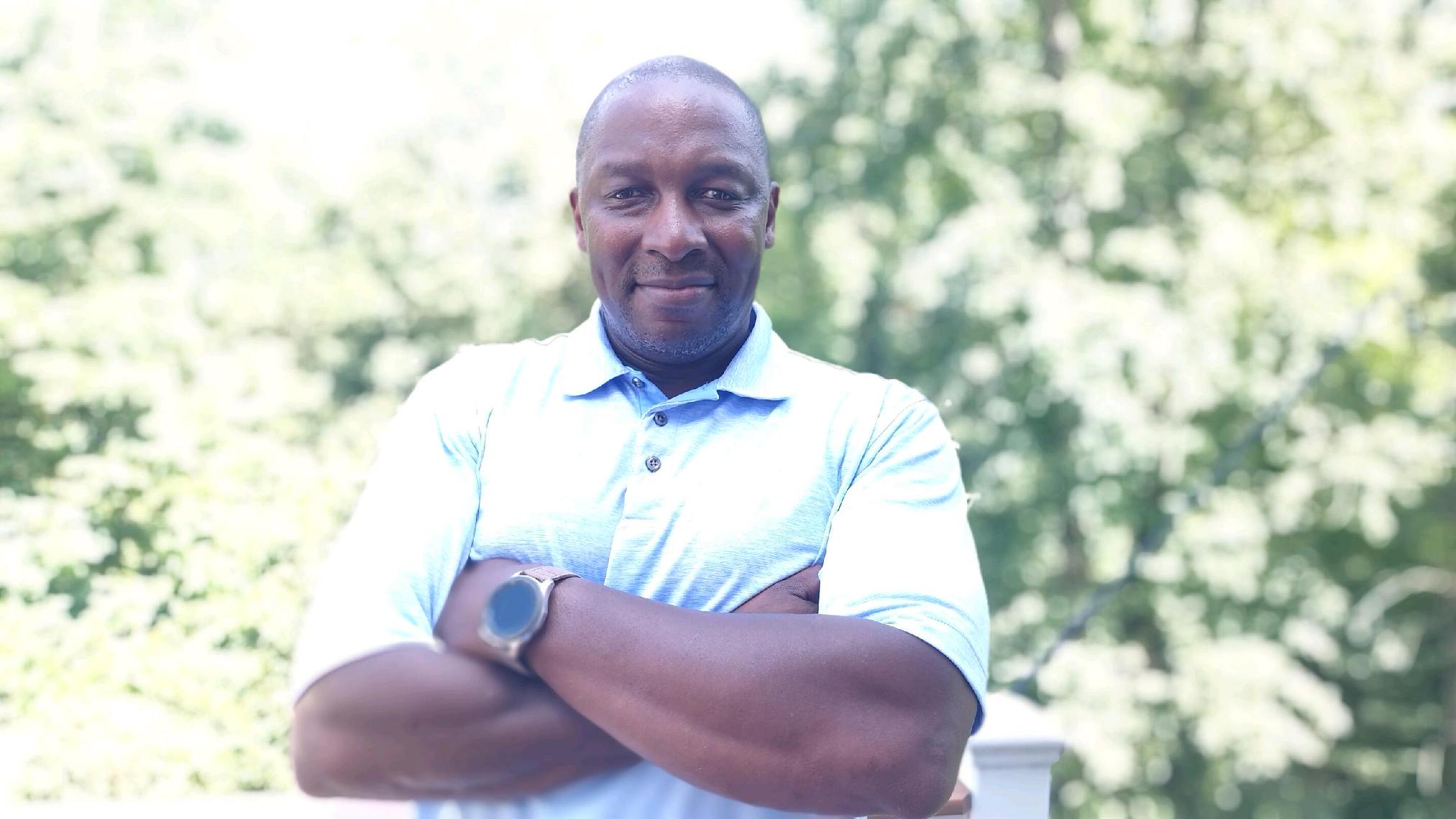
An immigrant from Kenya, Fred Rege says he moved to America when he was four. His parents didn’t have much money when they came to the United States. Now, he’s a living and breathing testament to the American Dream.
Rege works as an IT engineer and has two daughters in middle school. He first noticed CRT during remote learning and recalled reading a slide on “equity.”
“They are teaching them things about the way America is and the way America treats race that I don’t necessarily agree with,” Rege said. “And so for a little over a year, I just said, ‘Okay, I am going to just count on that they’re teaching this in schools,’ and then — at the dinner table — give my kids my version and everything.”
“But then, as this thing started picking up steam, and I started to see more and more about it in the news, I just started thinking about how there are other children in this county who don’t have parents like myself that will counter the message,” he also said. “So I decided to get involved.”
He recently signed a petition to recall Denise Corbo, the at-large member on the school board. He has been trying to get neighbors to sign petitions, with some people cursing him out. Rege has also gone to fundraisers and been attending school board meetings.
While he has joined the fight against CRT, many of his friends simply do not understand it all, he says. “Most people don’t know what it is,” he said. “And most people believe and think that the teachers and the education system have our kids’ best interests at heart.”
Rege voted for Donald Trump in 2016. Because he also considers himself more libertarian-leaning, he also said CRT should not be banned.
“I actually believe a free-market of ideas is the best choice and the best opportunity,” he said. “I don’t think we would be successful in banning.”
Bart Ecker

Bart Ecker works in health care, and he left it at that. He studied English language and literature at Susquehanna University and graduated in 1992. He’s a resident of Sterling.
Ecker has lived in Loudoun for 12 years and has four kids in the school’s system: twins who are 12, and a 13- and- 16-year-old.
He is a former Republican who did not align with Trump in 2016. He told me he has been trying to understand critical race theory and what it really means. When asked about equity, he described why he favors equality.
“I lean more toward equality of opportunity,” he said. “But then I see and talk to some people who are non-white, and they talk about their own personal experiences. I’ve heard from colleagues who are non-white talk about kind of their experiences growing up in neighborhoods and what they faced.”
Ecker noted that he does not believe America is systemically racist but seeks to understand how his minority colleagues think about race.
“I don’t think that’s a fair assessment. And I’ve been fortunate. With my experience and work experience, I’ve traveled all over Africa and Europe frequently. I think people need to learn about identity, but at its core, the data you read shows America is falling behind. Companies I work with are struggling to find qualified people for engineering and science positions,” he reflected.
Joseph Mineo
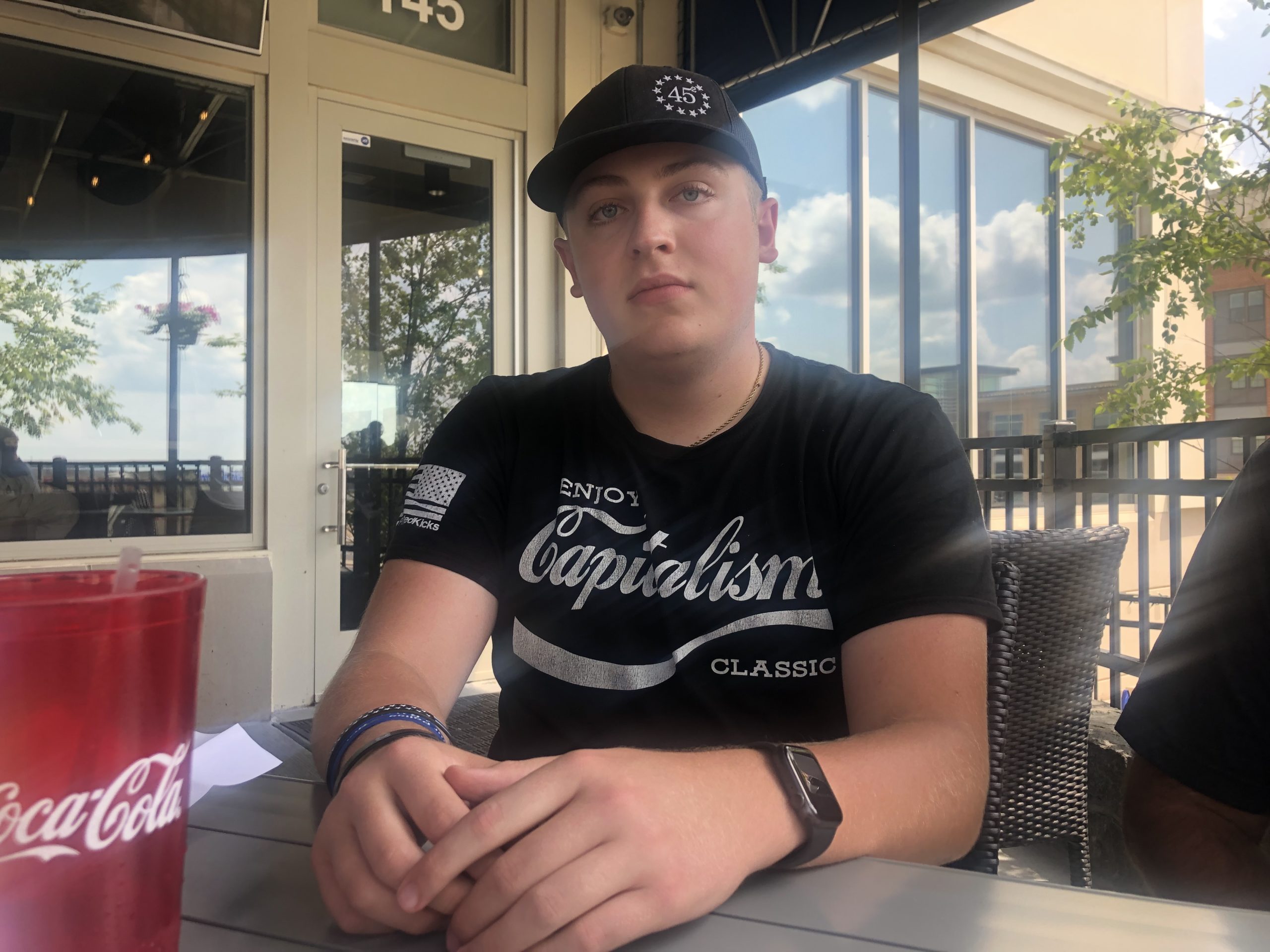
Joseph Mineo, 18, showed up at the bar wearing a Trump “45” hat and an “Enjoy Capitalism” shirt. He ordered a Coke and showed me his “white privilege card.” His father Scott — the founder of Parents Against Critical Race Theory — got copies for the family as a Christmas present.
Mineo is headed to Liberty University next year, having just graduated from Stone Bridge High School. He attended Academies of Loudoun, which specializes in pre-professional programs like criminal justice. He recently attended a Zoom class where he learned about “marginalization,” and how he can improve so-called “equity” in school.
He has been going to school board meetings with his father lately, too: “It’s getting more and more crowded, with people showing up and supporting [the cause].”
When asked if his friends are anti-CRT, he said it depends. His favorite outlet is The Daily Wire, where he recently put in an internship application.
“Well, they either have no idea what it is, or they think it’s completely crazy,” Mineo said. “For the most part, they have. There’s not really many who support it. Those that are kind of on the school’s side — us versus them — are just saying ‘Oh, [CRT] is not here at all.”
Unlike Hawes and Rege, the student thinks CRT should be banned.









